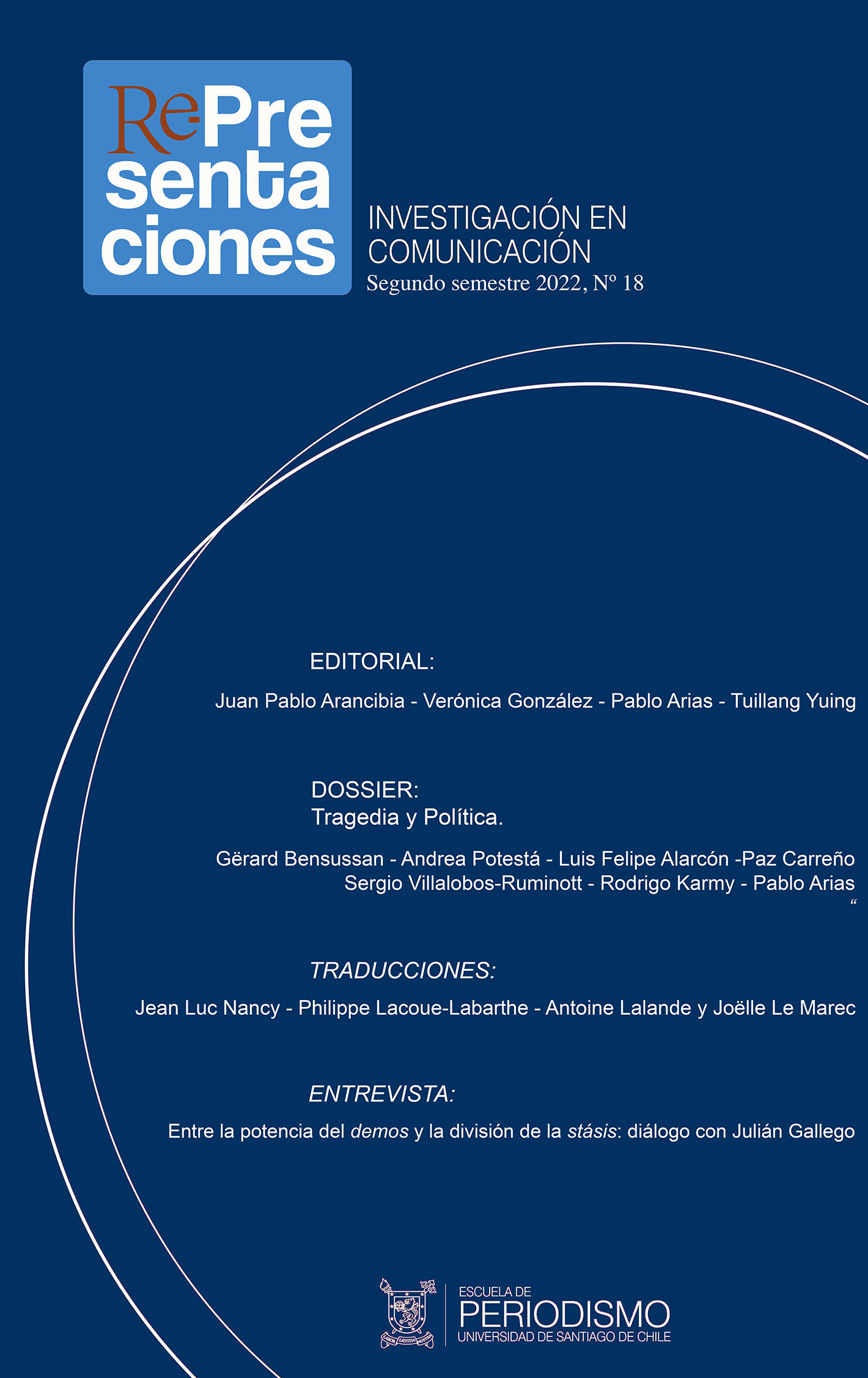The tragedy (in) politics
DOI:
https://doi.org/10.35588/rp.v0i18.5929Keywords:
politics, tragedy, democracyAbstract
Tragedy has historically been relegated outside the polis. Politics, it is usually said, is born in the ruins of the tragic world. However, the tragic force is constantly evoked in modernity as a transformative impulse of politics, whether in the form of a desire for catastrophe, of a revolution thought of as destruction and disaster of the rational order, or in the form of an annihilating suspension of the proper and free Cartesian subject. The problem of being-with has been constructed around the irruption of the tragic into the political. The present article interrogates this intersection, showing the ideological relapses, but also the transformative capacity of the political uses of the tragic.
Downloads
References
Bataille, G. (1997) Choix de lettres (1917-1962), Paris : Gallimard.
Bataille, G. (2003) “La mutilación sacrificial y la oreja de Vincent Van Gogh”, en La conjuración sagrada. Ensayos 1929-1939, trad. S. Mattoni, Buenos Aires: Adriana Hidalgo Editora.
Heidegger, M. (1997) Ser y tiempo, trad. E. Rivera, Santiago de Chile: Editorial universitaria.
Lacoue-Labarthe, Ph. (2010), La imitación de los modernos, trad. C. Duran, Buenos Aires: La Cebra.
Nancy, J.-L. (2015) “Après la tragédie”, en Demande, littérature et philosophie, Paris : Galilée, 2015.
Campbell, L. y Garnett, W. (1882). The life of James Clerk Maxwell. London: Macmillan.
Shakespeare, W. (1918) Henrique IV, trad. M. Cané, Buenos Aires: La cultura argentina.
Downloads
Submitted
2023-01-06Published
Issue
Section
License
Copyright (c) 2023 Andrea Potestà

This work is licensed under a Creative Commons Attribution 4.0 International License.









